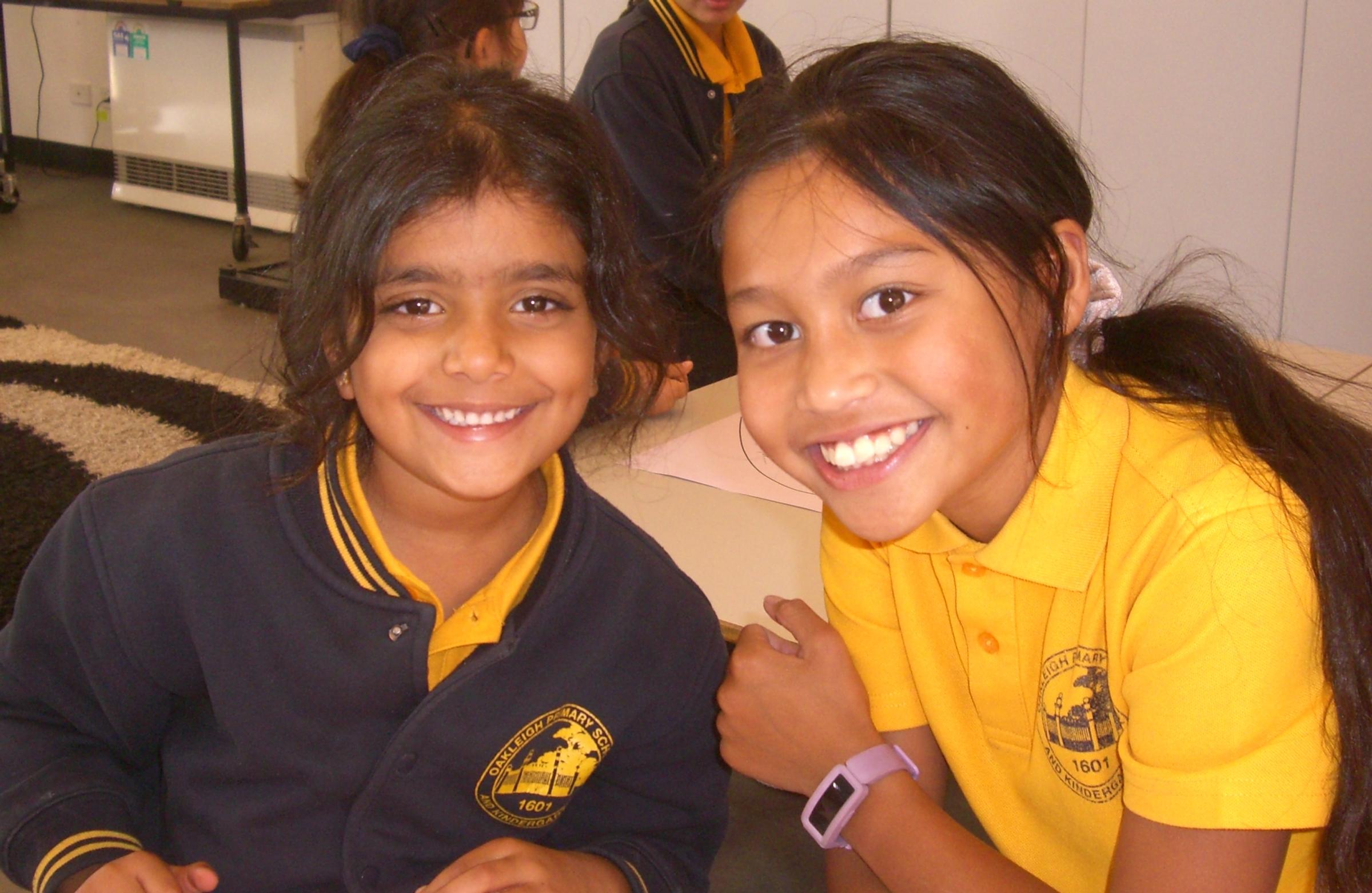From the AP

Grieving
Following recent events, I wanted to provide information about keeping an eye out for signs of distress and trauma, and how to promote recovery. It’s important that we work together as a school community to ensure the healthy development and recovery of our students and young people. Please know that you can contact me or your child’s teacher if you have any concerns about your child, or think that they may benefit from some more guidance.
I would also like to acknowledge that this may be an especially difficult time for some of our families. Please reach out if we can be of help.
School Nurse
Joanne Garner, a Visiting Primary School Nurse from the Department of Education and Training, will be attending the school to conduct Foundation Health Screening Assessments and to see students in Years 1-6 as requested by teachers and parents/guardian (with consent).
The purpose of the visit is to provide all Victorian school entry aged children with the opportunity to have a health screening assessment; to link children, families and schools to services available in the community; and to provide information and advice about children's health and wellbeing.
Parents/guardians of students in Years 1-6 who request for their child to undertake a Health Screening Assessment by the Visiting School Nurse, must complete a Primary School Nursing Program Student Referral Form which is available from myself at the office. The completed Student Referral Form must be returned by this Friday, 13th May.
Completed Foundation Student Entrant Health Questionnaire forms must be returned to the school by this Friday, 13th May, 2022. It is anticipated that most families will participate in the program.
Anxiety Study
Parents/Carers may be interested in an Australian wide anxiety treatment study for 7 – 12-year olds. This treatment study is funded by the National Health and Medical Research Council and is being conducted by Griffith University, Queensland. The Department of Education and Training Victoria has approved the study.
This study will determine if a computer delivered treatment designed to help children control their attention, improves and reduces children’s anxiety compared to another computer-delivered treatment based on cognitive-behavioural therapy.
For further information please see flyer attached.
Did you also know that May is Mental Health Month!
Please read Adele’s great article on our next Respectful Relationships topic on Positive Coping
As always, Be Kind to Yourselves.
Bron
Respectful Relationships – Positive Coping
We have now begun the third topic for Respectful Relationships this term known as ‘Positive Coping’. This topic links closely to our Positive Education philosophy where we have previously taught mindfulness, growth mindset and resilience across the school. The skills learnt through Positive Coping are lifelong and can be applied to our every day life, regardless of age.
Positive Coping
As children grow and develop, they all will encounter situations where they feel worried, nervous and sometimes even scared. Individuals deal with the demands on them by drawing on a range of coping strategies. Some strategies are more productive than others. Helping students to learn a range of positive coping skills allows them to develop and practise those skills, enabling them to cope with future changes and challenges.
Learning activities in this topic provide opportunities for students to identify and discuss different types of coping strategies. When children and young people develop a language around coping, they are more likely to be able to understand and deliberately utilise a range of productive coping strategies and diminish their use of unproductive coping strategies. Students learn to extend their repertoire of coping strategies and benefit from critically reflecting on their own choices whilst also being exposed to alternative options.
Coping strategies can be grouped into different types or categories. Five types of coping styles include:
Energetic Activity – includes things like exercise, sport, dance and active play which can help lift your mood.
Self-calming Activity – includes things that calm you down, like drawing, meditation, praying, being in a quiet space, listening to soothing music or taking a shower/relaxing bath.
Social Activity – includes things that connect you with others like talking things over, help-seeking or playing with others.
Shift Attention – includes things that take your mind to a different place like reading, watching TV, playing games or doing a favourite hobby.
Getting Organised – includes activities that help you plan and get organised, like making lists, tidying up, making a plan, organising an activity or making a game plan.
Usually these are positive strategies to use as long as they are not used excessively and match the situation we are in. For example, taking a shower to calm down might be good, but taking 10 showers a day would not be an effective way to cope. Playing basketball to lift your mood would be good, but playing basketball would not work as the only strategy for getting your homework in on time.
Self-Talk
Other activities introduce students to the concept of self-talk and practise using positive self-talk to approach and manage challenging situations. Positive self-talk is a key strategy for coping with negative thoughts, emotions and events. Resilience research shows that use of positive self-talk is associated with greater persistence in the face of challenge, whereas negative self-talk is associated with higher levels of distress, depression and anxiety.
Positive self-talk can be learnt or strengthened through practise. Positive self-talk is still a realistic perspective of the situation and not used in a way to give a false sense of the situation. For example you may have missed out on an opportunity to do something, you’re allowed to still feel disappointed. Positive self-talk would include that you are disappointed but then consider that you tried your best, be happy for someone else, or maybe next time you could ask for some extra help.
Below you will find what the following year levels will learn this term around Positive Coping:
Foundation students will learn to:
- Identify negative emotions
- Identify what can help them cope when they experience negative emotions
- Practise techniques for self-calming
- Practise self-talk techniques to understand and manage their own emotions
Year 1 students will learn to:
- Identify negative emotions they can feel when they lose or are excluded from a game, and the strengths they need to help them cope with these emotions
- Identify times when they need to use calming or cheering coping strategies
Year 2 students will learn to:
- Identify situations that can cause fear and anger
- Select coping strategies to help in dealing with their fears
- Choose strategies to help them control the way they express anger
- Identify that everyone has different fears, responses and coping strategies
Year 3 students will learn to:
- Identify that everyone has different fears, responses and coping strategies
- Describe how emotional responses vary in depth and strength
- Identify a range of productive coping strategies for use in different situations
Year 4 students will learn to:
- Identify the types of events and situations that can lead to feeling strong emotions
- Select techniques for controlling anger and reflect on how these techniques might help them to control their emotions
Year 5 students will learn to:
- Describe the concepts of positive and negative self-talk
- Practise using positive self-talk
Year 6 students will learn to:
- Describe the concepts of positive and negative self-talk
- Practise using positive self-talk
- Understand the distinction between positive and negative coping strategies
- Identify a range of positive coping strategies they can use in their everyday lives
Outside of school suggestions:
- Assist your child to recognise negative emotions such as anger, fear or sadness etc. Suggest strategies for your child to help calm down or distract.
- Create a bank of positive coping strategies for your family to draw upon when required.
- Complete the 5C’s Self Care bubbles from the KidsHelpLine - https://kidshelpline.com.au/sites/default/files/document/5%20C%27s%20of%20Self%20Care.pdf
- Create a DIY chatterbox with your child that includes coping strategies to draw from - https://vdocuments.net/kids-helpline-diy-chatterbox-kids-helpline-diy-chatterbox-aw-ead.html?page=1
- Have open dialogue with your child about the self-talk that occurs in your own head (child appropriate topics). Model to them times when you have used positive self-talk to overcome and cope with a situation and explain how we can all, even adults, be affected by negative-self talk.
- Encourage your child to talk aloud the conversations they are having with themselves. Assist identifying whether their self-talk is positive or negative and help them to shift their perspectives. For example: they may have not done well on a test. Some children think to themselves ‘I’m dumb, I not good at this.’ Help shift their perspective to ‘I didn’t do as well as I would have liked, but I know I tried my best. Maybe I could ask my teacher for some help.’
- Reinforce the Power of Yet. A phrase we hear a lot from children is ‘I can’t do that.’ Adding in the word yet, reminds children that although you might not be able to do it right now, that doesn’t mean that you won’t ever be able to do it! Here is a TedTalk Video on the Power of Yet - https://www.youtube.com/watch?v=J-swZaKN2Ic and a child friendly video about the Power of Yet - https://www.youtube.com/watch?v=i8AN9tu9Y84
- Reinforce the concept of a growth mindset – here is a video for more information on this https://www.youtube.com/watch?v=M1CHPnZfFmU
- Practise mindfulness at home. Mindfulness is an activity done where you fully focus on just the activity at hand. For some people that could include meditation or mindful colouring/drawing. For others that could be going for a run/walk or playing music. Smiling Mind offers free meditation/mindfulness audio activities appropriate for children - https://www.smilingmind.com.au/ . You can also download their app on your device.
If you have any questions please contact your child’s teacher.
Adele Cuff
AIP Wellbeing Leader
